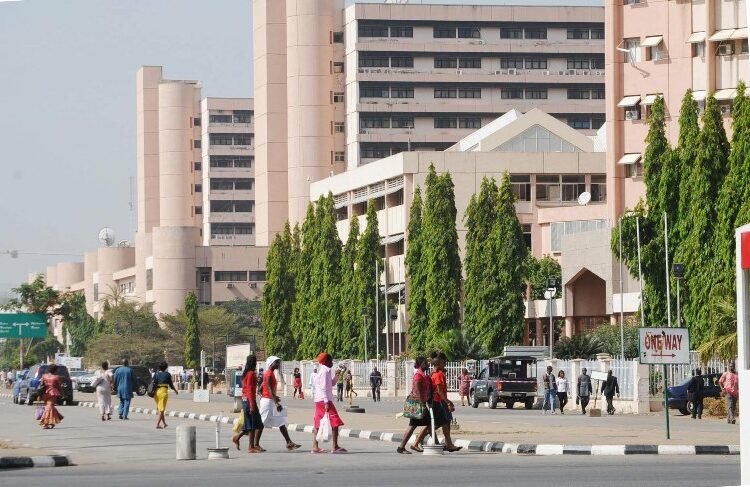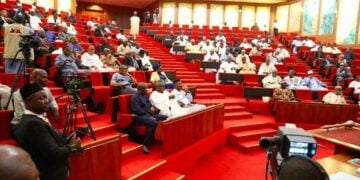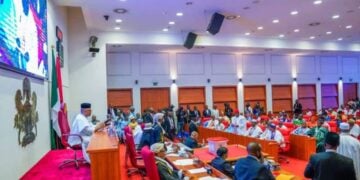Federal government and key stakeholders in the public sector have urged civil servants across Ministries, Departments and Agencies (MDAs) to embrace a culture of excellence, innovation and accountability in service delivery, stressing that effective governance depends on the quality of public service rendered to Nigerians.
This charge was made yesterday in Abuja during the Bureau of Public Enterprises (BPE) ServiCom Day Symposium, where stakeholders reiterated the need to transform the nation’s public service into a truly citizen-centered institution that delivers tangible results and inspires public confidence.
Delivering the keynote address, Dr. Sam Ikokun, a public sector transformation expert, called on civil servants to move beyond the routine pursuit of awards to practical impact that improves citizens’ lives.
He emphasized that every government agency must take ownership of its service touchpoints, innovate around them, and ensure that the overall public experience reflects efficiency, empathy, and excellence.
“We must focus on transformation, not perfection. The Bureau of Public Enterprises has shown what is possible through its recent recognition as Best Performing Agency in Customer Service. But beyond awards, the real challenge is to make excellent service delivery part of our corporate DNA,” Ikokun said.
Director general of the Bureau of Public Enterprises, Ayodeji Gbeleji, said his bureau has taken some measures to ensure effective and efficient service delivery, including regular conduct of surveys to gauge customer satisfaction with services rendered by the Bureau and maintenance of modern, well-equipped reception areas for the comfort of its guests, which has earned it recognition.
He said the theme of the symposium emphasises the broader impact of quality service delivery. The aim is to reinforce awareness of the pivotal role that customer service plays in the fulfilment of the mandates of the MDAs, while also promoting the ease of doing business in Nigeria.
The DG bragged that the Bureau has continued to expose its personnel to various capacity development programmes
to enhance the competencies of its staff and strengthen the quality of service delivery. “These include overseas conferences, specialised training, and capacity-building SM programmes with bilateral development partners across different jurisdictions,” he said.
Gbeleji encouraged the participants to draw practical insights from the themes and apply them to advancing service excellence in their respective spheres.
Acting national coordinator, ServiCom, Mr. Anthony Olugbenga asked the participants to always strive for excellence in their duty as desk front officers.
Ikokun noted that BPE’s multiple ServiCom awards in 2024 — including recognitions for its Director-General as Best Chief Executive Officer and for its local officer, Ipe Buzoma, as Second Best Performing Local Officer — reflect the agency’s renewed commitment to public service excellence after years of consistent effort.
Ikokun, however, stressed that these achievements should not lead to complacency, but rather inspire a continuous quest for improvement across all government agencies.
“The last thing we should do is to sit on the 2024 awards. We must raise the bar every year, even if we are the only ones in the race. The goal should be for the BPE to become the model— the ‘Mecca’ of service advancements in Nigeria that other agencies visit to learn what works,” he said.
He urged public officers to take personal responsibility for improving their own service areas, noting that institutional transformation begins with individual commitment. He outlined five strategic actions civil servants can adopt immediately: becoming individual excellence catalysts, cross-agency solution builders, accountability champions, innovation accelerators, and citizen engagement catalysts.
According to him, “Information without implementation is just expensive entertainment. Every civil servant must ask themselves whether they truly know what excellent service delivery feels like. You cannot give what you have not experienced. Service excellence should not be occasional — it must be ingrained in our culture.”
Ikokun also challenged trade unions to reimagine their role in the digital transformation era, moving from confrontation to collaboration by championing productivity, technological advancement, and capacity development. He argued that the world has evolved into the fourth industrial revolution, requiring unions to focus on driving competitiveness and innovation within the workplace.
“Unions must now fight for improved technology, human capacity development, and workplace excellence. They should see themselves as strategic resources that drive institutional growth,” he added.
Dr. Ikokun called on civil servants to embrace patriotism and collective responsibility in national development. “Nigeria is the team we didn’t choose, but it’s the team that must win. You can move abroad, but if Nigeria fails, we all lose. So, we must build it together through integrity, dedication, and quality service,” he said.
Also speaking at the event, the Chairman of the Senate Committee on Public Service, who was represented at the symposium, reaffirmed the National Assembly’s commitment to strengthening accountability frameworks across government institutions. He noted that effective service delivery remains vital to good governance, transparency, and national productivity.
“The Federal Government is determined to institutionalise service excellence across MDAs. Effective service delivery is vital to the good governance of our nation, and we must create a framework that fosters transparency, accountability, and results in our system,” he said.





